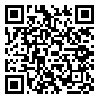BibTeX | RIS | EndNote | Medlars | ProCite | Reference Manager | RefWorks
Send citation to:
URL: http://jhsme.muq.ac.ir/article-1-131-fa.html
Background and Objectives: Mental health is one of the most important components of healthy life. Culture, particularly religious orientation, is one of the factors whose role in promoting mental health is increasingly being emphasized. The aim of this study was to investigate correlation between religious orientation and mental health among the staff of Pars Special Economic Energy Zone (PSEEZ) of Asalouyeh using Structural Equation Modeling (SEM).
Methods: The study population of this descriptive-correlational study consisted of all staff of PSEEZ. Of this population, 388 administrative staff were selected by random, cluster, multistage sampling to be study samples. To collect data, General Health Questionnaire and Religious Orientation Questionnaire were used. To investigate correlation between the studied variables, Pearson correlation coefficient was used. To investigate correlation between religious orientation and mental health among the staff, the SEM was used.
Results: Religious orientation and mental health were significantly correlated according to the SEM. Beliefs and rituals, and morality collectively explained 18% of variations in mental health.
Conclusion: The findings demonstrated that beliefs and rituals, and morality could be significant predictors of mental health, i.e. those who adhere to religious beliefs and practices and observe religious ethics have lower levels of anxiety and depression. Such people are therefore more capable of improving their relationships and interactions and have higher levels of mental health.
| بازنشر اطلاعات | |
 |
این مقاله تحت شرایط Creative Commons Attribution-NonCommercial 4.0 International License قابل بازنشر است. |






